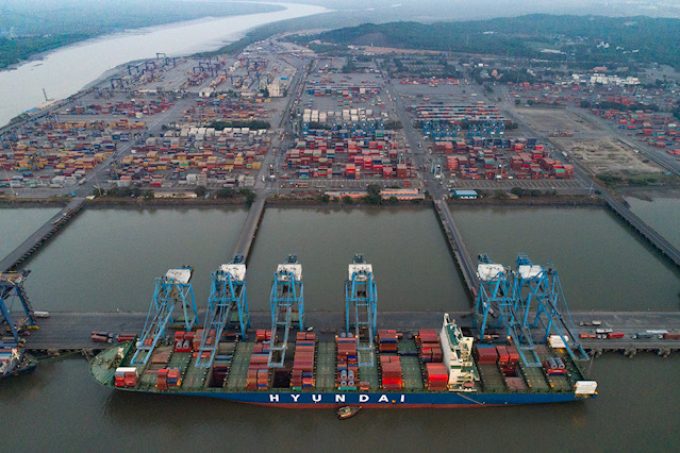India 'a critical growth market' for FedEx as it expands air express network
FedEx Express is putting itself on a stronger footing to tap into India’s booming trade ...
UPS: MULTI-MILLION PENALTY FOR UNFAIR EARNINGS DISCLOSUREWTC: PUNISHEDVW: UNDER PRESSUREKNIN: APAC LEADERSHIP WATCHZIM: TAKING PROFITPEP: MINOR HOLDINGS CONSOLIDATIONDHL: GREEN DEALBA: WIND OF CHANGEMAERSK: BULLISH CALLXPO: HEDGE FUNDS ENGINEF: CHOPPING BOARDWTC: NEW RECORDZIM: BALANCE SHEET IN CHECKZIM: SURGING
UPS: MULTI-MILLION PENALTY FOR UNFAIR EARNINGS DISCLOSUREWTC: PUNISHEDVW: UNDER PRESSUREKNIN: APAC LEADERSHIP WATCHZIM: TAKING PROFITPEP: MINOR HOLDINGS CONSOLIDATIONDHL: GREEN DEALBA: WIND OF CHANGEMAERSK: BULLISH CALLXPO: HEDGE FUNDS ENGINEF: CHOPPING BOARDWTC: NEW RECORDZIM: BALANCE SHEET IN CHECKZIM: SURGING

India Customs will auction abandoned or long-dwelling consignments at Nhava Sheva in a bid to dispose of export goods left uncleared by cargo interests.
Abandoned export/import containers have the potential to create congestion at docks as volumes build, hindering the pace of cargo flows.
The clearance sales will be held in co-ordination with the custodian of the cargo: typically, a customs-bonded warehouse or container freight station.
According to a public notice last week, Nhava Sheva freight stations need to immediately inform the authority about all export shipments that remain idle in their customs bonded space after the processing of shipping bills. But Customs added that consignments confiscated by any investigation agency or under a court order would not be auctioned.
“The custodian shall get the goods valued by two government-approved valuers, and the disposal shall be made by the custodian through e-auction,” guidelines noted.
The move has won support from freight station owners and other logistics stakeholders in Nhava Sheva. The last similar auction of ‘orphaned’ export cargo was in 2009.
“It’s a positive step and helps free-up storage space,” a depot owner in Nhava Sheva told The Loadstar. “Unlike for long-standing imports, there have been no guidelines for uncleared exports.”
The source also explained that abandoned consignments were often left unstuffed after customs inspections, while a less-than-containerload box held cargo of several shippers.
“There is a substantial volume of uncleared exports,” added the depot owner.
The auction proceeds will be shared equally between the custodian and Customs, according to the notice.
Given historical on-dock space constraints, Nhava Sheva now follows a “CFS storage model” for exports/imports, with as many as 35 depots in and around the harbour. The move is significant as the west coast port handles a large share of Indian containerised trade and faces landside bottlenecks due to volume surges.
Nhava Sheva has actively encouraged fast-track cargo clearance methods, such as direct port delivery (DPD) and direct port entry (DPE) services, and set a high bar on ease-of-doing-business indicators and logistics costs.
Any improvements are critical, as India’s containerised exports have equalled, or even exceeded, backhaul volumes in an evolving trade pattern in recent months. This reconfiguration, according to industry pundits, reflects manufacturing gains the emerging economy is making through the much-publicised ‘Make-in-India’ policy.
To put the port flow dynamics in perspective, according to data, Nhava Sheva saw 2.94m teu in loaded vessel lifts (exports) and 2.9m teu in container vessel discharges (imports) from April through February, the first 11 months of fiscal year 2023-24.
You can contact the writer at [email protected].
Comment on this article